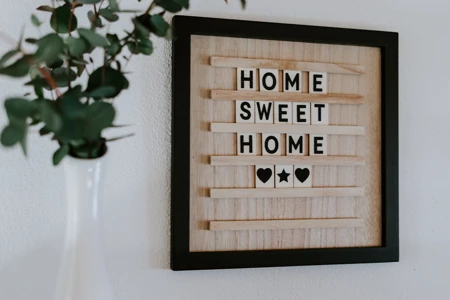Mortgages come in a variety of shapes and sizes, from fixed rate and tracker rate, to interest-only or repayment. If we’ve lost you already, keep reading as we cut through the jargon and help you understand the difference between each type of mortgage.
Trying to navigate the mortgage market can be a tricky business without an expert to guide you through it. With so many different types of mortgages available, each one has their own pros and cons for your personal circumstances.
Different mortgage types
Repayment mortgage
Every month you will pay back some of the money you borrowed, as well as the interest. At the end of your mortgage term, assuming you have met all the mortgage payments, you will have paid off your mortgage in full - oh the dream!
Interest-only mortgage
You only pay the interest each month, not the capital. This means your payments will be lower, but the overall amount you initially borrowed will still be outstanding at the end of the mortgage term.
If you choose this mortgage then you need to have alternative arrangements to pay it off, such as investments or savings plans.
Fixed rate mortgage
You will pay the same amount every month for a set period of time (this could be two, five or even 10 years), regardless of what happens to the Bank of England base rate.
Many people like the peace of mind this brings, as you’ll always know what your mortgage payments will be.
Tracker rate mortgage
This type of mortgage tracks the Bank of England base rate, so the interest rate charged is the base rate, plus an agreed margin (an additional rate). Therefore, your mortgage repayments will fluctuate as and when the base rate changes.
Offset mortgage
Your mortgage is linked to a savings account or perhaps a current account. The amount you have in these accounts will be deducted from your outstanding mortgage balance. This means you’ll pay less interest, as you only pay interest on the outstanding mortgage amount. However, you’re unlikely to earn interest on your savings which are offset.
Standard variable rate mortgage (SVR)
Once your fixed rate comes to an end, you’ll fall onto a standard variable rate, known as SVR. SVR payments will rise and fall at the lender’s discretion, but traditionally they track the Bank of England’s base rate. For instance, if the base rate goes up, your mortgage payments will follow. If the base rate goes down, so will your mortgage payments.
Which type of mortgage is right for you?
A mortgage is a long-term commitment, so if you’re still not sure which one is right for your circumstances, then you’ll benefit from a chat with a mortgage adviser.
Our advisers will listen to your needs and help find the right type of mortgage for you. Your initial appointment is free, so get in touch with us today.
Learn more about how a mortgage adviser can help you here.
Important information
Your home may be repossessed if you do not keep up repayments on your mortgage.
There may be a fee for mortgage advice. The actual amount you pay will depend on your circumstances. The fee is up to 1% but a typical fee is 0.3% of the amount borrowed.

